
Authors
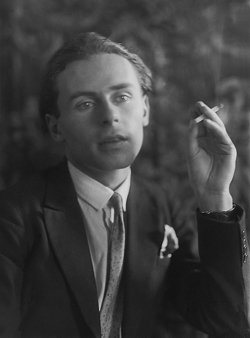
Born in Munich, Klaus Mann was the son of German writer Thomas Mann and his wife, Katia Pringsheim. His father was baptized as a Lutheran, while his mother was from a family of secular Jews. Mann's most famous novel, Mephisto, was written in 1936 and first published in Amsterdam. The novel is a thinly-disguised portrait of his former brother-in-law, the actor Gustaf Gründgens. The literary scandal surrounding it made Mann posthumously famous in West Germany, as Gründgens' adopted son brought a legal case to have the novel banned after its first publication in West Germany in the early 1960s. After seven years of legal hearings, the West German Supreme Court upheld the ban, although it continued to be available in East Germany and abroad. The ban was lifted and the novel published in West Germany in 1981. Mann died in Cannes from an overdose of sleeping pills on 21 May 1949, following further drug treatment. He likely committed suicide because of financial problems and social isolation. He was buried in Cannes at the Cimetière du Grand Jas.
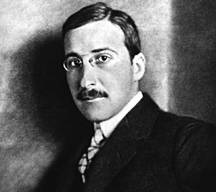
ولد “زفايج” في فيينا عاصمة النمسا عام 1881، اشتهر في بداية حياته كشاعر ومترجم، ثم ذاع صيته في المرحلة التالية في حياته كمؤلف سير وتراجم حين كتب سيرة كل من: “بلزاك”. و”ديكنز” والملكة الفرنسية “ماري أنطوانيت” زوجة ملك فرنسا “لويس السادس عشر”. وفي المرحلة التالية من حياته كتب زفايج عدداً من القصص القصيرة قبل أن يذهل العالم بروايته الخالدة (حذار من الشفقة) في عام 1929 وقد عاش في “لندن” من عام 1934 حتى عام 1940، واكتسب الجنسية البريطانية، ثم هاجر بعد ذلك إلى الولايات المتحدة الأمريكية” ومنها إلى “البرازيل” حيث مات منتحراً في عام 1942 عن (61 عاماً)، وفي العام التالي 1943 نشرت سيرته الذاتية بقلمه بعنوان “عالم الأمس”.
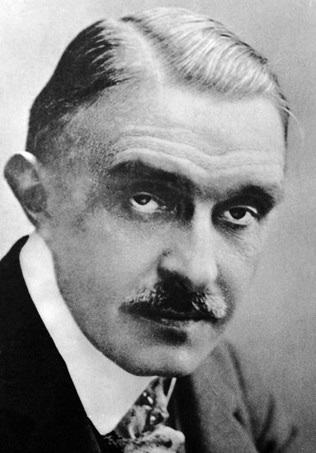

Prague-born writer Franz Kafka wrote in German, and his stories, such as " The Metamorphosis " (1916), and posthumously published novels, including The Trial (1925), concern troubled individuals in a nightmarishly impersonal world. Jewish middle-class family of this major fiction writer of the 20th century spoke German. People consider his unique body of much incomplete writing, mainly published posthumously, among the most influential in European literature. His stories include "The Metamorphosis" (1912) and " In the Penal Colony " (1914), whereas his posthumous novels include The Trial (1925), The Castle (1926) and Amerika (1927). Despite first language, Kafka also spoke fluent Czech. Later, Kafka acquired some knowledge of the French language and culture from Flaubert, one of his favorite authors. Kafka first studied chemistry at the Charles-Ferdinand University of Prague but after two weeks switched to law. This study offered a range of career possibilities, which pleased his father, and required a longer course of study that gave Kafka time to take classes in German studies and art history. At the university, he joined a student club, named Lese- und Redehalle der Deutschen Studenten, which organized literary events, readings, and other activities. In the end of his first year of studies, he met Max Brod, a close friend of his throughout his life, together with the journalist Felix Weltsch, who also studied law. Kafka obtained the degree of doctor of law on 18 June 1906 and performed an obligatory year of unpaid service as law clerk for the civil and criminal courts. Writing of Kafka attracted little attention before his death. During his lifetime, he published only a few short stories and never finished any of his novels except the very short "The Metamorphosis." Kafka wrote to Max Brod, his friend and literary executor: "Dearest Max, my last request: Everything I leave behind me ... in the way of diaries, manuscripts, letters (my own and others'), sketches, and so on, [is] to be burned unread." Brod told Kafka that he intended not to honor these wishes, but Kafka, so knowing, nevertheless consequently gave these directions specifically to Brod, who, so reasoning, overrode these wishes. Brod in fact oversaw the publication of most of work of Kafka in his possession; these works quickly began to attract attention and high critical regard. Max Brod encountered significant difficulty in compiling notebooks of Kafka into any chronological order as Kafka started writing in the middle of notebooks, from the last towards the first, et cetera. Kafka wrote all his published works in German except several letters in Czech to Milena Jesenská.

Arthur Schnitzler was an Austrian author and dramatist. The son of a prominent Hungarian-Jewish laryngologist Johann Schnitzler and Luise Markbreiter (a daughter of the Viennese doctor Philipp Markbreiter), was born in Vienna in the Austro-Hungarian Empire, and began studying medicine at the local university in 1879. He received his doctorate of medicine in 1885 and worked at the Vienna's General Hospital, but ultimately abandoned medicine in favour of writing. His works were often controversial, both for their frank description of sexuality (Sigmund Freud, in a letter to Schnitzler, confessed "I have gained the impression that you have learned through intuition—though actually as a result of sensitive introspection—everything that I have had to unearth by laborious work on other persons")[1] and for their strong stand against anti-Semitism, represented by works such as his play Professor Bernhardi and the novel Der Weg ins Freie. However, though Schnitzler was himself Jewish, Professor Bernhardi and Fräulein Else are among the few clearly-identified Jewish protagonists in his work. Schnitzler was branded as a pornographer after the release of his play Reigen, in which ten pairs of characters are shown before and after the sexual act, leading and ending with a prostitute. The furore after this play was couched in the strongest anti-semitic terms;[2] his works would later be cited as "Jewish filth" by Adolf Hitler. Reigen was made into a French language film in 1950 by the German-born director Max Ophüls as La Ronde. The film achieved considerable success in the English-speaking world, with the result that Schnitzler's play is better known there under Ophüls' French title. In the novella, Fräulein Else (1924), Schnitzler may be rebutting a contentious critique of the Jewish character by Otto Weininger (1903) by positioning the sexuality of the young female Jewish protagonist.[3] The story, a first-person stream of consciousness narrative by a young aristocratic woman, reveals a moral dilemma that ends in tragedy. In response to an interviewer who asked Schnitzler what he thought about the critical view that his works all seemed to treat the same subjects, he replied, "I write of love and death. What other subjects are there?" Despite his seriousness of purpose, Schnitzler frequently approaches the bedroom farce in his plays (and had an affair with one of his actresses, Adele Sandrock). Professor Bernhardi, a play about a Jewish doctor who turns away a Catholic priest in order to spare a patient the realization that she is on the point of death, is his only major dramatic work without a sexual theme. A member of the avant-garde group Young Vienna (Jung Wien), Schnitzler toyed with formal as well as social conventions. With his 1900 short story Lieutenant Gustl, he was the first to write German fiction in stream-of-consciousness narration. The story is an unflattering portrait of its protagonist and of the army's obsessive code of formal honour. It caused Schnitzler to be stripped of his commission as a reserve officer in the medical corps—something that should be seen against the rising tide of anti-semitism of the time. He specialized in shorter works like novellas and one-act plays. And in his short stories like "The Green Tie" ("Die grüne Krawatte") he showed himself to be one of the early masters of microfiction. However he also wrote two full-length novels: Der Weg ins Freie about a talented but not very motivated young composer, a brilliant description of a segment of pre-World War I Viennese society; and the artistically less satisfactory Therese. In addition to his plays and fiction, Schnitzler meticulously kept a diary from the age of 17 until two days before his death, of a brain hemorrhage in Vienna. The manuscript, which runs to almost 8,000 pages, is most notable for Schnitzler's cas
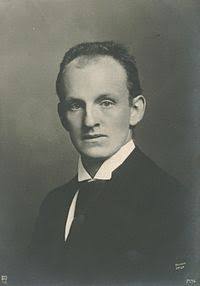
Arabic profile for Gerhart Hauptmann أديب ألماني، يعد من أهم أدباء الحركة الطبيعية في ألمانيا. حصل على جائزة نوبل في الأدب لسنة ١٩١٢.

Franz Kafka فرانز كافكا (3 يوليو 1883 - 3 يونيو 1924) كاتب تشيكي يهودي كتب بالألمانية، رائد الكتابة الكابوسية. يعد أحد أفضل أدباء الألمانية في فن الرواية والقصة القصيرة. تعلم كافكا الكيمياءوالحقوق والادب في الجامعة الألمانية في براغ (1901). ولد لعائلة يهودية متحررة، وخلال حياته تقرب من اليهودية. تعلم العبرية لدى معلمة خصوصية. عمل موظفا في شركة تأمين حوادث العمل. امضى وقت فراغه في الكتابة الادبية التي راى بها هدف وجوهر حياته. القليل من كتاباته نشرت خلال حياته، معظمها - يشمل رواياته العظمى (الحكم) و(الغائب) التي لم ينهها- نشرت بعد موته، على يد صديقه المقرب ماكس برود، الذي لم يستجب لطلب كافكا بإبادة كل كتاباته. حياته كانت مليئة بالحزن والمعاناة، بما في ذلك علاقته بوالده. فكافكا كان مثقفا حساسا وقع تحت حكم والد مستبد وقوي، عنه، هكذا قال، كتبت كل إنتاجاته. فكتب رسالته الطويلة تحت عنوان (رسالة لأب). الامر يبرز بصورة خاصة في كتابه (الحكم) حيث يقبل الشاب حكم الموت الذي اصدره عليه والده ويغرق. كان كافكا نباتيا واشمأز من أكل اللحوم، وهنالك من يربطون هذا بمهنة جده الذي كان جزارا. عرف كافكا على انه شخص يصعب عليه اتمام الامور، وهو الامر الذي ميز كتابته حيث كان يجد صعوبة في انهاء إنتاجاته. جدير بالذكر كذلك أن كتابات كافكا قد تعرضت فيما بعد للحرق على يد هتلر، وتعرضت مؤلفات كافكا لموقفين متناقضين من الدول الشيوعية في القرن الماضي، بدأت بالمنع والمصادرة وانتهت بالترحيب والدعم. من مؤلفاته: المحاكمة، القلعة، المفقود، رسالة إلى الوالد، الانمساخ، الحكم، الوقاد، بنات أوى والعرب
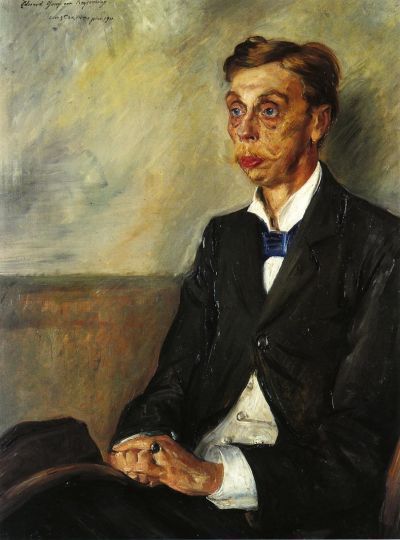
Eduard Graf von Keyserling (May 15, 1855 – September 28, 1918) was a Baltic German fiction writer and dramatist and an exponent of literary Impressionism. Keyserling was born at Schloss Tels-Paddern, Courland Governorate, within the Russian Empire, now Kalvene parish, Liepaja District in Latvia. He belonged to an ancient family of Baltic German nobility and was a cousin of the philosopher Hermann Keyserling. He died in Munich, Bavaria. Keyserling's early novels Fräulein Rosas Herz. Eine Kleinstadtliebe (1887) and Die dritte Stiege (1892) were influenced by Naturalism. His essays on general and cultural questions, like his theater plays, are forgotten. His narrative, novellas and novels, after 1902, place Keyserling at the forefront of German literary Impressionism. A subtle and elegant stylist, Keyserling's narrative is unforgettable for its evocative ambience and "feel". His most emblematic work is perhaps Fürstinnen (Princesses), only superficially related to the typical German 19th century Schlossroman. Somehow midway between Ivan Turgenev and Franz Kafka, there is a certain pessimistic kinship between Keyserling and Anton Chekhov.
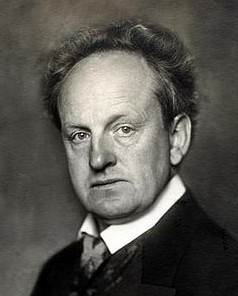
Gerhart Johann Robert Hauptmann was a German dramatist and novelist. He is counted among the most important promoters of literary naturalism, though he integrated other styles into his work as well. He received the Nobel Prize in Literature in 1912. Life Hauptmann's first drama, Before Dawn (1889) inaugurated the naturalistic movement in modern German literature. It was followed by The Reconciliation (1890), Lonely People (1891) and The Weavers (1892), a powerful drama depicting the rising of the Silesian weavers in 1844 for which he is best known outside of Germany. Hauptmann's subsequent work includes the comedies Colleague Crampton (1892), The Beaver Coat (1893), and The Conflagration (1901), the symbolist dream play The Assumption of Hannele (1893), and an historical drama Florian Geyer (1895). He also wrote two tragedies of Silesian peasant life, Drayman Henschel (1898) and Rose Bernd (1903), and the dramatic fairy-tales The Sunken Bell (1896) and And Pippa Dances (1906). Hauptmann's marital life was difficult and in 1904 he divorced his wife. That same year he married the actress Margarete Marschalk, who had borne him a son four years earlier. The following year he had an affair with the 17-year-old Austrian actress Ida Orloff, whom he met in Berlin when she performed in his play The Assumption of Hannele. Orloff inspired characters in several of Hauptmann's works and he later referred to her as his muse. In 1911 he wrote The Rats. In 1912, Hauptmann was awarded the Nobel Prize in Literature, "primarily in recognition of his fruitful, varied and outstanding production in the realm of dramatic art." During the First World War Hauptmann was a pacifist. In this period of his career he wrote several gloomy historical-allegorical plays, such as The Bow of Odysseus (1914), The White Saviour (1912–17), and Winter Ballade (1917). After the war, his dramatic abilities appeared to diminish. He wrote two full-length plays that are similar to the early successes: Dorothea Angermann (1926) and Before Sunset (1932). He remained in Germany after Hitler's Machtergreifung and survived the bombing of Dresden. His last work was the Atriden-Tetralogie (1942–46). His works in German were published by S. Fischer Verlag. Hauptmann died at the age of 83 at his home in Agnetendorf (now Jagniątków, Poland) in 1946. Since the Polish communist administration did not allow Hauptmann's relatives to bury him in Agnetendorf (although even the Soviet military government had recommended this), his body was transported in an old cattle wagon to occupied Germany more than a month after his death. He was buried near his cottage on Hiddensee. Under Wilhelm II Hauptmann enjoyed the reputation of a radical writer, on the side of the poor and outcasts. During the Weimar Republic (1918–33) he enjoyed the status of the literary figurehead of the new order, and was even considered for the post of state president. Under Hitler he kept his distance from the regime, but never publicly criticized it. This, and the fact that (unlike so many writers and academics) he stayed in Germany, was strongly held against him after the war. A superb collected edition of his works appeared in the 1960s, and stimulated some impressive studies of his work (e.g. those by Peter Sprengel), but the tide of critical and public opinion remained negative. A few of his plays are still revived from time to time, but otherwise he is neglected. He was certainly an uneven writer, but at his best (as in 'The Weavers', his novel 'The Fool in Christ Emmanuel Quint', and the Novellen 'The Heretic of Soana' and 'Das Meerwunder') he can arguably rank with the best of his German contemporaries. Source : http://en.wikipedia.org/wiki/Gerhart\_...
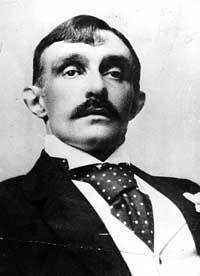
Herman Bang wrote his very first book back in 1880, it was called "Haabløse Slægter". Herman Joachim Bang (20. april 1857 – 29. januar 1912) var en dansk kritiker, forfatter og journalist. Han blev født i Asserballe på Als i hertugdømmet Slesvig som søn af sognepræst Frederik Ludvig Bang (1816-1875) og hustru Thora Elisabeth Salomine Blach (1829-1871) og blev student i 1875 fra Sorø Akademi. Herman Bang er kendt for sin impressionistiske skrivestil. Herman Bang døde i Ogden i Utah i USA under en oplæsningsturné og er begravet på Vestre Kirkegård i København.
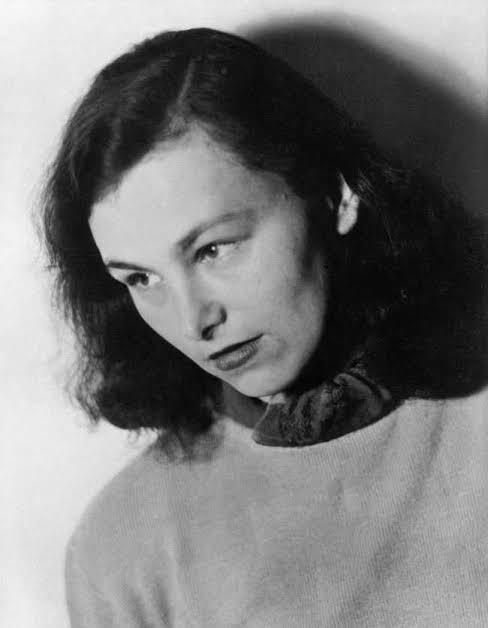

Stefan Zweig was one of the world's most famous writers during the 1920s and 1930s, especially in the U.S., South America, and Europe. He produced novels, plays, biographies, and journalist pieces. Among his most famous works are Beware of Pity, Letter from an Unknown Woman, and Mary, Queen of Scotland and the Isles. He and his second wife committed suicide in 1942. Zweig studied in Austria, France, and Germany before settling in Salzburg in 1913. In 1934, driven into exile by the Nazis, he emigrated to England and then, in 1940, to Brazil by way of New York. Finding only growing loneliness and disillusionment in their new surroundings, he and his second wife committed suicide. Zweig's interest in psychology and the teachings of Sigmund Freud led to his most characteristic work, the subtle portrayal of character. Zweig's essays include studies of Honoré de Balzac, Charles Dickens, and Fyodor Dostoevsky (Drei Meister, 1920; Three Masters) and of Friedrich Hölderlin, Heinrich von Kleist, and Friedrich Nietzsche (Der Kampf mit dem Dämon, 1925; Master Builders). He achieved popularity with Sternstunden der Menschheit (1928; The Tide of Fortune), five historical portraits in miniature. He wrote full-scale, intuitive rather than objective, biographies of the French statesman Joseph Fouché (1929), Mary Stuart (1935), and others. His stories include those in Verwirrung der Gefühle (1925; Conflicts). He also wrote a psychological novel, Ungeduld des Herzens (1938; Beware of Pity), and translated works of Charles Baudelaire, Paul Verlaine, and Emile Verhaeren. Most recently, his works provided the inspiration for 2014 film The Grand Budapest Hotel.
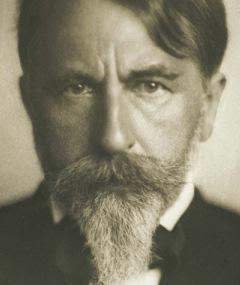
Arabic profile for Arthur Schnitzler روائي نمساوي وكاتب مسرحي. وهو من الطبقة الفكرية اليهودية الأثرياء وأبوه أستاذ في كلية الطب بجامعة فيينا. درس الطب في جامعة فيينا وأصبح طبيباً ، لكن بعد اهتمامه بالطب النفسي والتنويم المغناطيسي ، شارك في الأدب. دخل الأنشطة الإبداعية بجدية في عام ١٨٩٣. كطبيب، وجه نظره إلى حياة الإنسان والموت بعيون مستنيرة، وكطبيب يعمل على تطبيق الإناث الحادة على عالم النفوس والدوافع.